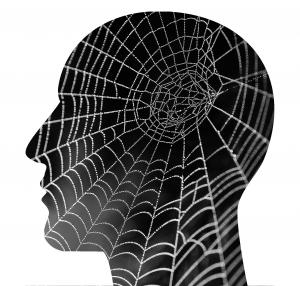
On life with a taboo illness
Suicide Prevention Month is almost at a close. I wanted to talk about how this month and this issue has impacted me to highlight the challenges of living with mental illness in a highly stigmatized community. Suicide is a taboo subject amongst Muslims. If you mention the topic of suicide to many, the response is often the same. “Suicide is haram (forbidden).” And the conversation ends there. Some may go further and share a few words about the punishment for someone who has completed suicide. But what I’ve noticed is that since I accepted Islam, that’s basically all the information I’ve ever heard on this subject. Lately, I’ve started to wonder if stigma is the reason suicide is so difficult to talk about for people.
During this month, I’ve tried to share information with my online communities about the realities of suicide and how to help a person who may be suicidal. I’ve also shared tips on how to spot someone who needs help reaching out, before it’s too late. There were a tremendous number of facts about suicide and suicidal ideation floating around on the web. I grabbed as many as I could to pass along, hoping that it would be of use. I would have enjoyed giving a talk in person, to share how I’ve worked to overcome suicidality. But I had to do my advocacy solely online because I was facing my own mental health challenges, and not able to leave the house for much of the month.
Initially, I felt shy to share facts about suicide, because I thought I might encounter people who would tell me much of the same that I’ve heard in the past. I was reluctant to open myself up to such scrutiny, but I didn’t want to neglect talking about something so important. Because of my social anxiety, I felt nervous each time I shared a fact, wondering who was judging me for talking about this subject so freely. And I wasn’t sure if someone would try to shut my efforts down. I’ll admit, I’m not knowledgeable about this subject from a religious standpoint. My intention is not to delve into an area where I have no formal background. But if indeed it is as cut and dried that suicide is completely forbidden in my religion, then someone like me who struggles with mental illnesses that bring me to the brink of suicide regularly, needs more information on how to prevent completing this act. And if there is more to it, such as considering the person’s state of mind at the time they may commit this act, then I believe that should be known as well.
I’ve shared my stories of times I’ve been suicidal before. When I think back to how I felt and what I was thinking during those times, I see why I needed to be hospitalized. My thought process when I’m feeling suicidal is not linear or logical. It’s fatalistic, flawed and unreasonable. When I’m suicidal, I often believe things that aren’t true or based in reality. During suicidality, I’ve felt that my kids will be better off without me in the world, that everyone is out to get me, that ‘the Universe’ is conspiring against me, that I deserve to be punished eternally for being a bad person, and so forth. I don’t think those any of things when I’m well. But the fact of the matter is, I can be triggered into suicidality at any moment.
I’m healing and learning to live with my illnesses. I’m grateful that so far, I haven’t made a fatal mistake. But I would like to be able to discuss my feelings openly with others in my community, to know that I’m not alone. It is isolating to feel as though part of my illness isn’t acceptable in my world. I will probably never get to a point where I can state that I’m totally recovered from suicidality. It may always be a part of me, even if I learn how to permanently suppress the urge to self-harm.
What I’d like to see in the future is religious discussions that include the whole of this topic and not just pieces. And I’d enjoy having input from experts in mental health from my community on how to overcome suicidal ideation and suicide. As stigma decreases and the topic of mental health, in general, becomes acceptable to discuss openly, I feel optimistic that soon this topic will be given the attention it deserves. I look forward to that day.
















